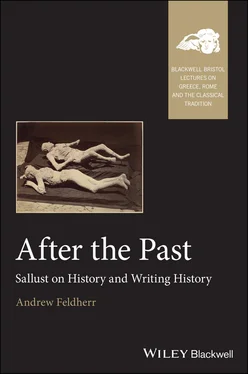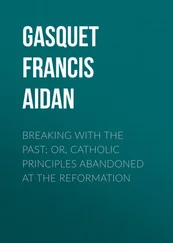173 163
174 164
175 165
176 166
177 167
178 168
179 169
180 170
181 171
182 172
183 173
184 174
185 175
186 176
187 177
188 178
189 179
190 180
191 181
192 182
193 183
194 184
195 185
196 186
197 187
198 188
199 189
200 190
201 191
202 192
203 193
204 194
205 195
206 196
207 197
208 198
209 199
210 200
211 201
212 202
213 203
214 204
215 205
216 206
217 207
218 208
219 209
220 210
221 211
222 212
223 213
224 214
225 215
226 216
227 217
228 218
229 219
230 220
231 221
232 222
233 223
234 224
235 225
236 226
237 227
238 228
239 229
240 230
241 231
242 232
243 233
244 234
245 235
246 236
247 237
248 238
249 239
250 240
251 241
252 242
253 243
254 244
255 245
256 246
257 247
258 248
259 249
260 250
261 251
262 252
263 253
264 254
265 255
266 256
267 257
268 258
269 259
270 260
271 261
272 262
273 263
274 264
275 265
276 266
277 267
278 268
279 269
280 270
281 271
282 272
283 273
284 274
285 275
286 276
287 277
288 278
289 279
290 280
291 281
292 282
293 283
294 284
295 285
296 286
297 287
298 288
299 289
300 290
301 291
302 292
303 293
304 294
305 295
306 296
307 297
308 298
309 299
310 300
311 301
312 302
313 303
314 304
315 305
316 306
317 307
318 308
319 309
320 310
321 311
322 312
323 313
324 314
325 315
326 316
327 317
328 318
The opportunity to deliver the 2014 Bristol-Blackwell Lectures on which this book is based has been the highpoint of my professional life. The invitation gave me the chance to attempt a sustained reading of an author who has fascinated and frustrated me since I first encountered him. And the too brief weeks I spent in Bristol itself continue to delight and inspire me with memories of the warm hospitality I received, the generosity and responsiveness of the audiences for my lectures, and so many conversations with students and faculty that simply clicked, not to speak of the interest and beauty of the city, if not always of its weather. Among the many friends I made during that visit, I want to single out for particular thanks Bob Fowler, Laura Jansen, Kurt Lampe, Adam Lecznar, Genevieve Lively, and Edwin Shaw. Ellen O’Gorman and Shane Butler fall into a special category, for beyond the kindness of their welcome each also presented a formal response to one of my talks, as did Christopher Pelling and Christopher Whitton. Peter Wiseman generously read the script of my presentations and pointed out several places where, as he put it with even more generous understatement, “the premises of the argument may be vulnerable.” Should any of these have the stomach to revisit those lectures in written form, I hope they will recognize how much I have learned from them.
If Bristol counts as the Everest of my career, the Princeton of those years was its lofty cloud forest, a habitat it was my unbelievable good fortune to share with the sage pandas, shimmering snow leopards, and mobile langurs that made up its storied fauna. One of the great satisfactions of completing this project has been to recognize how profoundly it has been shaped by the work of so many of my Latinist colleagues. My use, and occasional abuse, of the scholarship of Yelena Baraz, Ted Champlin, Denis Feeney, Harriet Flower, Bob Kaster, Dan-el Padilla Peralta, and Brent Shaw throughout the chapters to follow shows but the traces of a much larger personal and intellectual debt. (And I hope that my old friend Andrew Riggsby, who visited Princeton during that period, will allow himself to be counted in this number.) Further thanks are due to Princeton’s Council of the Humanities, from whom I received an Old Dominion Fellowship, which provided me with leave to write my lectures and allowed me to share the weekly colloquia of its Society of Fellows. Support was also offered by the Loeb Classical Library Foundation.
The long time it has taken me to complete this book has cost me many of the readers with whom I had most looked forward to sharing it. What my dissertation adviser and friend Tom Habinek taught me about how to read Latin literature has sustained and enriched my entire career. And, like its predecessors, this book would have shown him only too clearly how much work remained for him to do. The tact, wisdom, and kindness with which my mother-in-law Zara Steiner nurtured my professional confidence over so many years are a debt I could never repay. And hearing her talk about her own work was a rare and irreplaceable joy.
During the year I began this project, each day started with a walk in the radiant company of my dog Clio. Her presence made every idea seem brilliant and every problem simple. The rest of those mornings was consumed in pushing her away from the computer as I struggled to reconstruct the fragments of what I thought I had figured out. I consoled myself, and I hope her, with the promise of the unclouded times we would spend together once the book was done. Clio died two months before I sent the manuscript out for review. In the face of all Sallust’s moral precepts, I would delete every word to have her back: nothing matters more than a dog’s happiness.
In addition to the lectures I gave at Bristol, I presented earlier versions of Chapter 4at Pomona College and of Chapter 5at Cambridge University, the College of Charleston, and at the 2017 Celtic Conference in Classics in Montreal. I am indebted to the questions and suggestions I received on those occasions.
The contributions of Christina Kraus and the other, anonymous, referee for the press have been beyond exemplary. I am so grateful to each both for seeing the potential of the project and for pointing out in such precise detail where I was falling short of realizing it. They gave me far too much to think about and will themselves know best where I have failed to profit from their advice, but copious thanks are due both from me and my readers for all the improvements and corrections they have made. It was a pleasure to work with my copy editor Helen Kemp. Her diligence and her cheerfulness were equally appreciated. I owe another huge debt to Dr. Emma Curran for preparing the Index of Passages and for catching more mistakes in the manuscript than I dare to count. Many thanks also to Todd Green and the other editors at Wiley Blackwell—over the years—for not losing faith that a manuscript would eventually appear, for their punctual and helpful assistance when it did, and, not least, for packing this dropsical endomorph into the black-sheathed chorus line of their series.
The most important modern treatment of the “revolution” that ended the last Roman Republic concludes as follows: “For power he [sc. Augustus] had sacrificed everything; he had achieved the height of all mortal ambition and in his ambition he had saved and regenerated the Roman People” (Syme 1939, 524). Sallust, the Roman historian whose first experiment in the genre zeroes in on a representative moment in that crisis, stands clearly in the background. The protagonist of Sallust’s work, Catiline, an aristocrat who unsuccessfully tried to seize power in 63 bce, was equally driven on by ambition. Indeed, Sallust identifies such ambition as, with avarice, the cause of revolution, moral and political. But the idea that individual ambition could be a salvific force for the Roman People is unimaginable in his writing, and so the recollection of his contemporary perspective highlights the profound historical irony of the story that Syme has told.
Читать дальше












